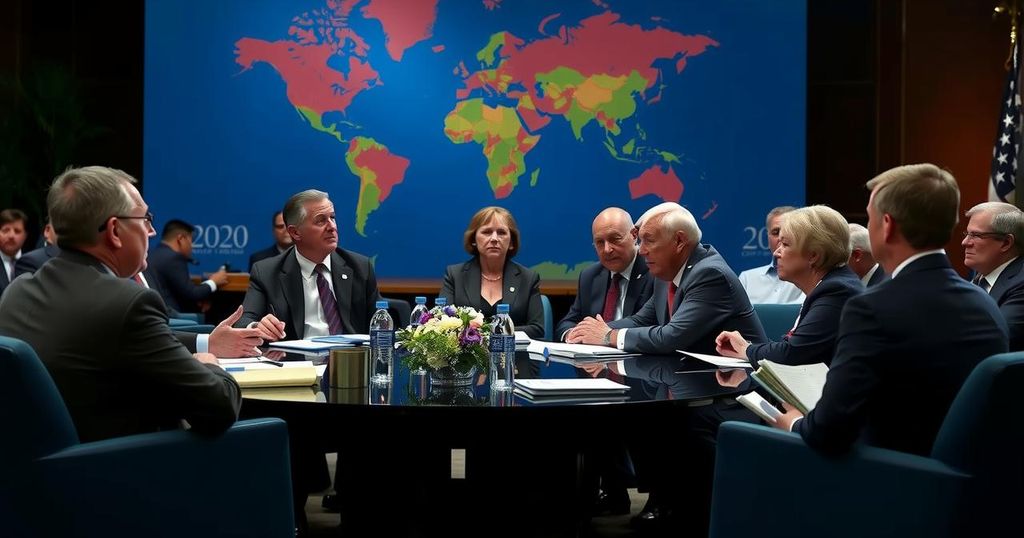Developing Nations Decry $300 Billion Climate Deal as Inadequate
Developing nations criticized a $300 billion climate deal as inadequate following COP29 negotiations. Despite being hailed by some as a historic outcome, representatives from India, Sierra Leone, and Nigeria expressed their dismay, stating it was an insult to vulnerable countries. The deal commits developed nations to aid the green transition of poorer states but falls short of previous financial expectations.
A recently negotiated climate finance deal has provoked significant backlash among developing nations, which perceive a pledged $300 billion yearly from developed countries as grossly inadequate. Following weeks of intense negotiations in Azerbaijan that culminated in the early hours of a Sunday, nearly 200 nations reached an agreement that, while hailed by some as a necessary step, has drawn pointed criticism for its limited scope. Examples from representatives of various countries illustrate widespread discontent with the perceived lack of commitment from wealthier nations to adequately support those most vulnerable to climate change.
Indian delegate Chandni Raina declared the commitment to be “paltry” and labeled the document an “optical illusion” that fails to align with the monumental challenges facing mankind. Similarly, Jiwoh Abdulai from Sierra Leone referred to the agreement as indicative of a “lack of goodwill” from developed countries, while Nigeria’s Nkiruka Maduekwe stated unequivocally, “This is an insult.” As poorer nations entered the discussions, they sought a much more substantial financial boost, significantly exceeding the current $100 billion annual pledge.
Despite the dissatisfaction expressed across the developing world, UN climate chief Simon Stiell acknowledged the imperfections of the final deal, urging not to view it as a complete success. Although the U.S. President Joe Biden characterized the agreement as a “historic outcome,” numerous voices within the developing nations labeled the results as inadequate concerning the scale of necessary action. The broader implications of potential funding—amounting to $1.3 trillion yearly—remain primarily contingent on private sector contributions rather than government inputs from wealthier nations.
The recent climate deal emerged from COP29, a pivotal conference during which nearly 200 nations convened to discuss strategies for addressing climate change. Developed countries have historically contributed to the disproportionate impact of climate change on poorer nations, which often lack the resources to mitigate and adapt effectively to environmental changes. The agreement aims to facilitate a transition toward greener economies while helping nations at greater risk prepare for climate-related disasters. However, the discussions highlighted the stark divisions and negotiations between developed and developing nations regarding funding commitments and responsibilities.
In conclusion, while the agreement reached at COP29 signifies progress in climate finance discussions, the reactions from developing nations underscore profound dissatisfaction with the terms. This deal, although described as critical by some leaders, has been criticized as inadequately addressing the urgent needs of the most vulnerable countries. Moving forward, it is essential that developed nations reconsider their commitments to ensure that climate finance equitably reflects the responsibilities of historic emissions and the imminent threats faced by developing nations.
Original Source: www.al-monitor.com




Post Comment